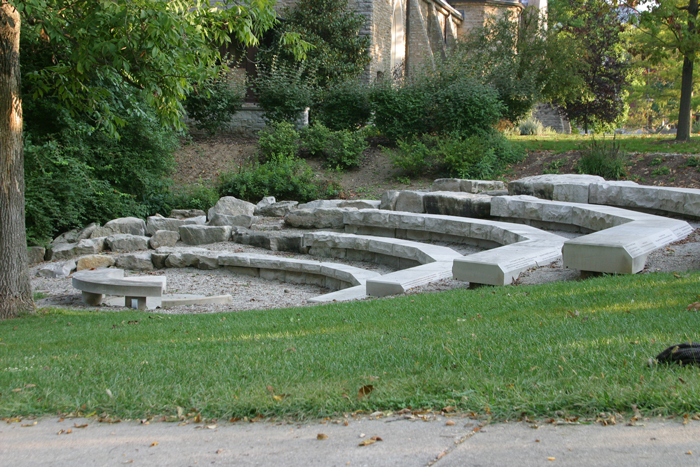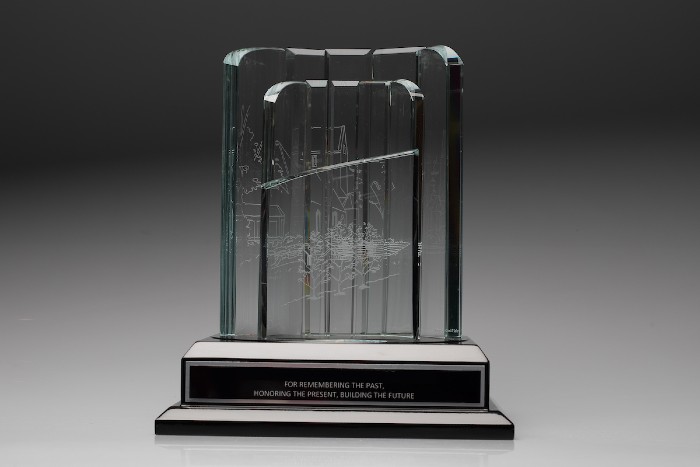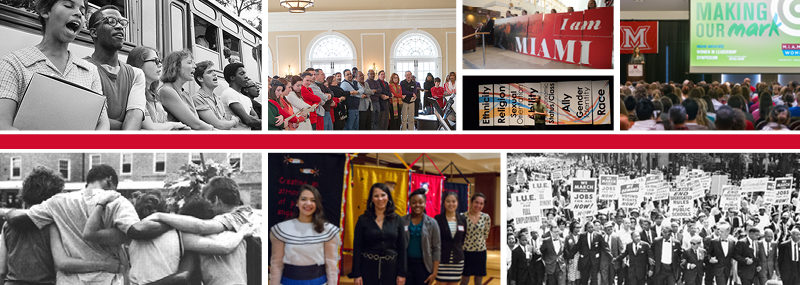
Freedom Summer '64
Take a Look Back at Freedom Summer

Volunteers practice non-violent resistance during Freedom Summer training at Western College for Women (photo by Ted Polumbaum, Newseum Collection).

Singing "We Shall Overcome," this group of Freedom Summer volunteers begins its journey from Oxford, Ohio to Mississippi. Despite the dangers, more than 1,000 college students volunteered to canvass, teach and establish community centers (photo Ted Polumbaum, Newseum Collection).

Freedom Summer organizer Bob Moses talks to volunteers at an orientation in Peabody Hall, Western College for Women, now part of Miami's Western campus (photo Ted Polumbaum, Newseum Collection).

Freedom Summer workers and volunteers gather to sing outside of Clawson Hall (photo by George R. Hoxie; courtesy of Smith Library of Regional History).
That fateful Freedom Summer of '64 became the catalyst for much progress and change in our nation. In 2014, Miami celebrated the 50th anniversary of Freedom Summer with a University-wide, year-long event, "Celebrating Freedom: Understanding the Past, Building the Future." It provided an opportunity to reflect on the progress made and the efforts yet to come in the United States and globally to ensure the freedom and dignity of all people. The Celebration focused on issues and topics such as civil rights, immigration, voting rights, women’s rights, gay rights, freedom of speech, human rights, and others—all related to the basic right of freedom.
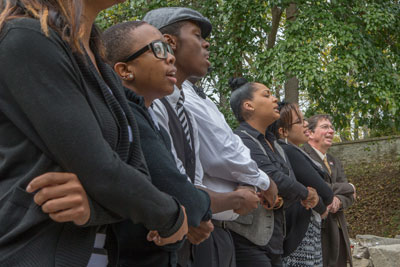
The 50th Anniversary Freedom Summer Conference and Reunion was held October 11–14, 2014. Featuring several guest lecturers and panelists, scholars, students, and community members gathered to explore civil rights and celebrate Freedom Summer as a model for change and progress.
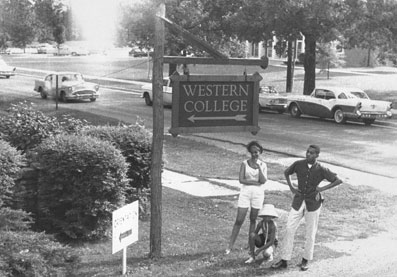
Faces of Freedom Summer: The Photographs of Herbert Randall
This milestone anniversary exhibition commemorating the 1964 Mississippi Freedom Project features over 100 photos printed from the original negatives taken by photojournalist Herbert Randall. Exhibition features also include the documents distributed to trainees and a documentary about the photographer.
Visit Miami's digital archives to learn more »

When John Swann moved into Collins Hall in 1961, life changed drastically for the African-American freshman from West Virginia.
Featured in the Summer 2014 edition of Miamian, Swann reflects on his years as a colored-negro-black student on campus during the changing 1960s.
Office of Transformational and Inclusive Excellence
Our mission is to empower each student, staff, and faculty member to promote and become engaged citizens who use their acquired knowledge and skills with integrity and compassion to improve the future of the community and the world.
Contact Us
Dr. M. Cristina Alcalde
Vice President, Office of Transformational and Inclusive Excellence
Hanna House
513-529-1715
vpDiversity@MiamiOH.edu
Vice President, Office of Transformational and Inclusive Excellence
Hanna House
513-529-1715
vpDiversity@MiamiOH.edu
